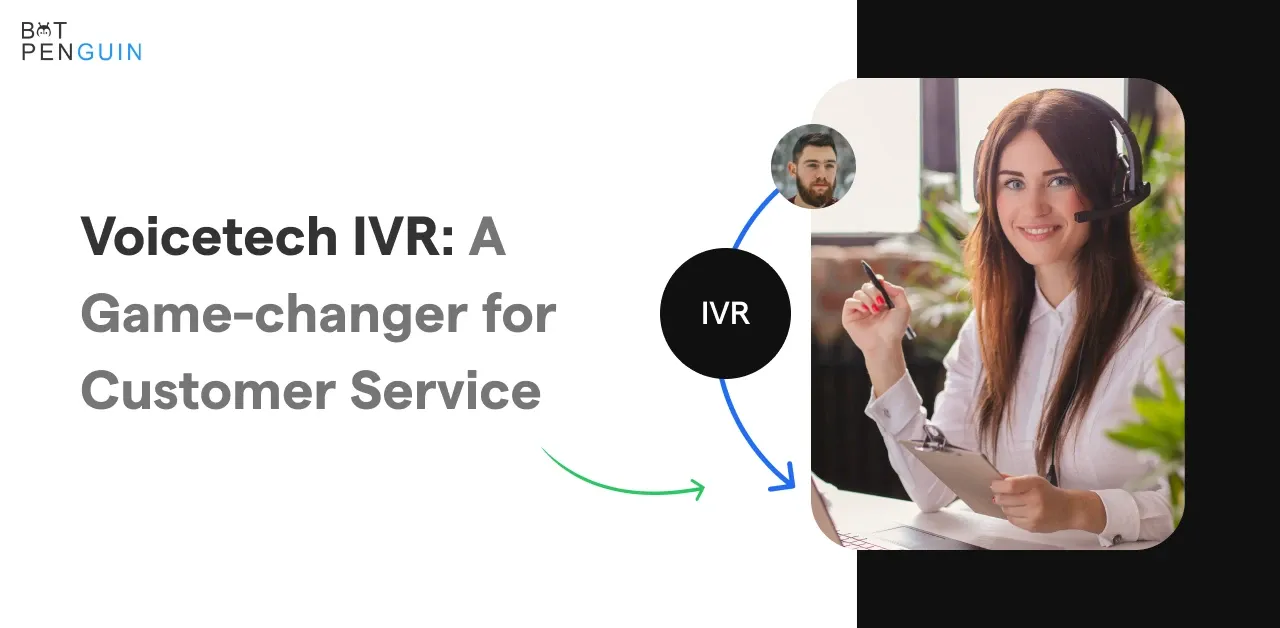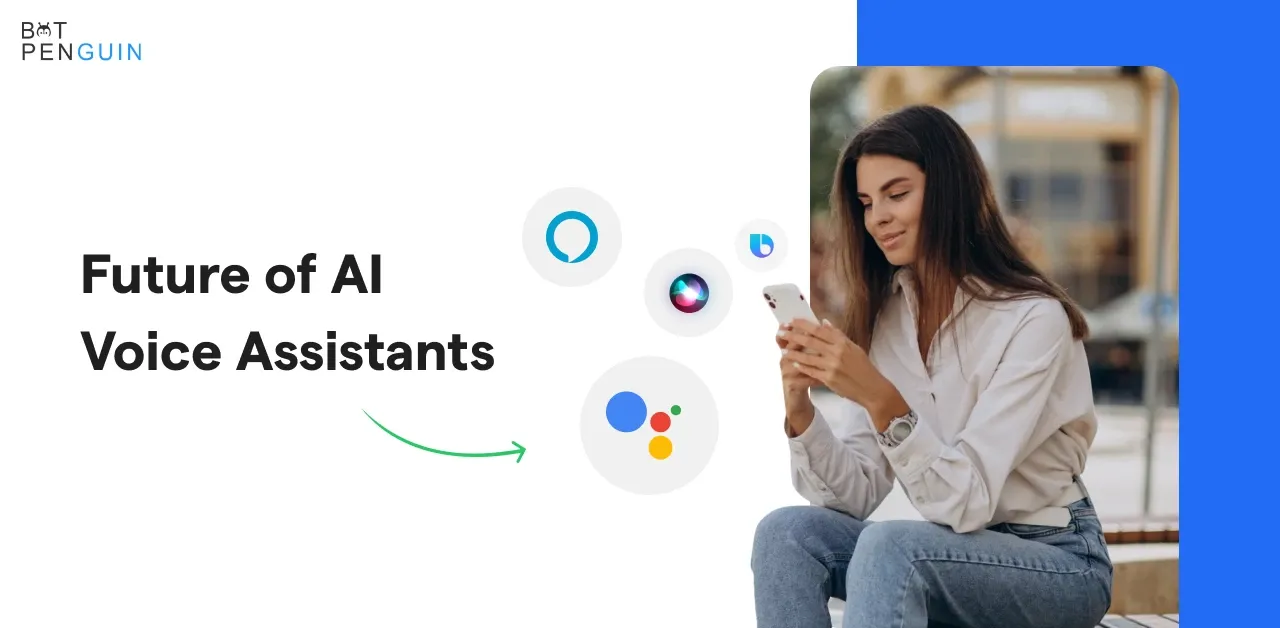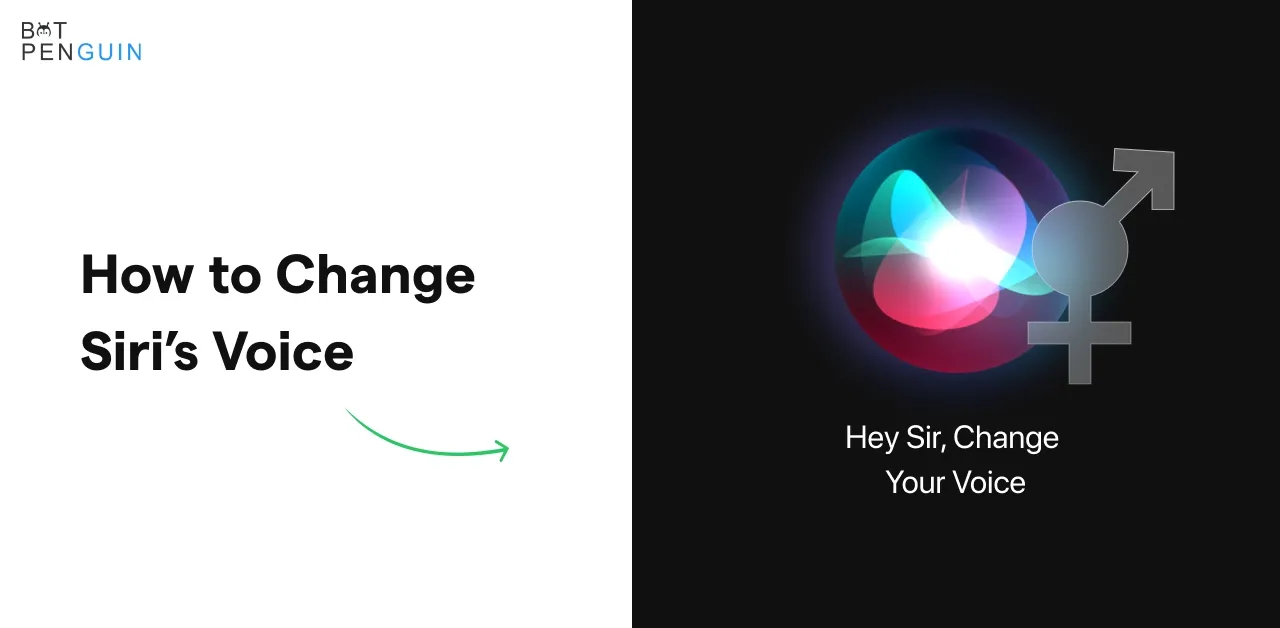All customers desire a more direct, individualized customer experience.
Customers now have the convenience and freedom to choose when, where, and how they connect with you, thanks to more channels and options than ever before.
An IVR is a practical tool that enables customers to obtain the information they want, address their issues, or complete a transaction without speaking to a live person.
It is now considered a standard feature for contact centers and service-oriented businesses.
Customers are guided through a series of options using voice and button prompts to arrive at their desired destination.
As a result, less time is wasted waiting in line to speak with an agent about simple tasks.
When you know that your staff's time may be better spent on tasks with a higher potential for value, using an IVR also makes things easier for them.
This blog post will explain how Voicetech IVR can revolutionize customer service.
What is Voicetech IVR?
Voicetech IVR (Interactive Voice Response) is a technology that enables automated communication between a computer system and a human caller through voice commands.
Businesses commonly use IVR systems to handle high customer calls efficiently and cost-effectively.
Voicetech IVR systems typically use pre-recorded voice prompts to provide callers with options to navigate the system and direct their call to the appropriate department or agent.
Callers can use their voice or touch-tone keypad inputs to select options and access the necessary information.
Some Voicetech IVR systems also incorporate natural language processing (NLP) technology, which enables callers to speak more conversationally with the system and receive more personalized responses.
This type of IVR system can be particularly useful in industries such as healthcare, where patients may have complex questions or require detailed information about their care.
What does a conversational Voicetech IVR do?
A conversational IVR (Interactive Voice Response) is an advanced IVR technology that uses natural language processing (NLP) to enable human-like conversations between the caller and the system.
Unlike traditional Voicetech IVR systems that rely on pre-recorded voice prompts and limited menu options, conversational Voicetech IVRs allow callers to speak in a more natural and conversational manner, providing a more personalized and engaging customer experience.
Conversational IVR systems use machine learning and artificial intelligence (AI) to understand and interpret the caller's intent and respond accordingly.
This technology allows the system to recognize language, dialect, and context variations and provide accurate and relevant responses to the caller's queries.
How does Voicetech IVR work?
IVR (Interactive Voice Response) technology enables automated communication between a computer system and a human caller through voice commands.
The system presents a series of pre-recorded voice prompts to the caller and responds based on the caller's input.
Here are the general steps of how IVR works:
The caller dials the IVR system's phone number and is greeted with a pre-recorded message:
When a caller dials the IVR system's phone number, they are usually greeted with a pre-recorded message that introduces the system and presents a set of options.
For example, the message may say, "Thank you for calling XYZ Bank. To check your account balance, press 1. To speak to a customer service representative, press 2".
The caller selects an option:
After hearing the options, they choose the desired option by speaking or pressing the corresponding key on their phone's keypad.
For example, if the caller wants to check their account balance, they may press 1.
The system provides a response:
Based on the caller's input, the system plays a pre-recorded message or prompts the caller for additional information.
For example, if the caller selects the option to check their account balance, the system may encourage them to enter their account number or PIN.
If the system cannot recognize the caller's input, it may ask them to repeat it.
The system uses speech recognition technology:
When the caller provides the requested information, the system uses speech recognition technology to recognize the input and provide a relevant response or take appropriate action.
For example, if the caller enters their account number and PIN, the system may provide their account balance information.
The voicetech IVR system can transfer the call to a live agent:
If the caller requires further assistance or if the IVR system cannot resolve their query, the call can be transferred to a live agent.
The IVR system can collect the necessary information from the caller and route the call to the appropriate department or agent.
IVR technology can be customized to suit specific business needs, with the ability to add or remove menu options, include additional prompts, and integrate with other systems, such as customer databases or CRM systems.
How does IVR serve as a game-changer for customer service?
IVR (Interactive Voice Response) technology serves as a game-changer for customer service in several ways:
1. Voicetech IVR works to improve efficiency
One of the best benefits of IVR technology is that it can handle a large volume of calls simultaneously.
This means businesses can manage more customer inquiries with fewer staff, freeing human agents to focus on more complex queries that require a human touch.
This can reduce wait times and improve the overall efficiency of the customer service operation.
IVR systems can also be designed to handle routine tasks, such as account inquiries, which can reduce the need for human intervention even further.
2. Voicetech IVR helps to increase availability
IVR systems can operate 24/7, providing customers access to information and services anytime, even outside regular business hours.
This can be particularly beneficial for businesses with a global customer base or those in industries where customers may require assistance outside normal working hours.
With an IVR system, customers can access the information they need, such as their account balance or order status, without waiting for business hours to resume.
This can help to improve customer satisfaction and loyalty.
3. Voicetech IVR helps personalize experience
Advanced technologies such as natural language processing and machine learning are now commonly integrated into IVR systems, allowing for more personalized and engaging customer interactions.
By recognizing speech patterns and understanding the intent behind customer inquiries, IVR systems can tailor responses to individual customers, making them feel valued and understood.
This personalization level can help build customer loyalty and improve overall satisfaction with the service provided.
4. Voicetech IVR is cost-effective
Implementing an IVR system can be more cost-effective than hiring additional customer service agents to handle a high volume of calls.
Once an IVR system is in place, it can handle many inquiries with minimal ongoing costs.
Additionally, IVR systems can reduce the cost of training and onboarding new customer service agents.
With the data collected through IVR interactions, businesses can optimize the IVR system to handle the most common inquiries and reduce the need for human intervention, further lowering operational costs.
5. Voicetech IVR helps with collection and analysis
IVR systems can collect and analyze data from customer interactions, providing businesses with valuable insights into customer needs and behavior.
With the help of analytics tools, companies can analyze call volume, customer inquiries, and other metrics to identify trends and areas for improvement.
By understanding customer needs and behavior more deeply, businesses can optimize their products and services, improve operations, and ultimately enhance the overall customer experience.
Moreover, IVR technology can be a game-changer for customer service, enabling businesses to provide fast, efficient, and personalized service while reducing costs and improving operational efficiency.
What are IVR software app integrations?
IVR (Interactive Voice Response) software app integrations allow businesses to connect their IVR system seamlessly with other applications or tools, enabling a more streamlined customer experience and improved efficiency.
Here are some common IVR software app integrations:
- CRM Integration: Integrating an IVR system with a CRM (Customer Relationship Management) platform can provide a more personalized experience for callers. By accessing customer data from the CRM, the IVR system can provide tailored responses based on the caller's history and preferences. This can help to improve customer satisfaction and loyalty.
- Call Center Software Integration: Integrating an IVR system with call center software can help to improve call routing and reduce wait times. Call center software can route calls to the most appropriate agent based on language preference, call history, or issue type. This can improve the overall efficiency of the call center operation.
- Chatbot Integration: Integrating an IVR system with a chatbot can provide customers with more options for self-service. Customers who prefer not to interact with the IVR system can be redirected to a chatbot for assistance. This can provide a more engaging and personalized experience for the customer while also reducing the workload for human agents.
- SMS Integration: Integrating an IVR system with SMS (Short Message Service) can allow customers to receive notifications and updates via text message. For example, a customer might receive an SMS notification when their order has shipped or a payment has been processed. This helps keep customers informed and improve their overall experience.
- Social Media Integration: Integrating an IVR system with social media platforms such as Facebook or Twitter can provide customers with additional channels for communication. For example, customers can interact with an IVR system via Facebook Messenger or receive updates via Twitter. This can improve customer engagement and provide a seamless experience across different channels.
FAQs
1. What's an example of IVR?
An excellent illustration would be when a patron contacts a theatre to ask about movie timings.
IVR reduces phone wait times and boosts customer satisfaction, and the IVR system employs an updated database to provide the caller with a list of the most recent movie timings.
2. Who developed IVR technology?
IVR technology is essentially based on dual-tone multi-frequency technology, created in the 1960s by Bell System in its most basic form.
The development of phones with a keypad was made possible by the dial mode based on tones.
Conclusion
IVR (Interactive Voice Response) technology has become a game-changer for customer service operations across industries.
IVR systems may boost the effectiveness and availability of customer support operations by handling many calls at once and giving consumers access to information and services around the clock.
Advanced technologies such as natural language processing and machine learning have also enabled more personalized and engaging interactions with customers.
In contrast, data collection and analysis have provided businesses with valuable insights into customer behavior and needs.
We hope you found this blog insightful! For more such blogs, visit www.botpenguin.com.
Thankyou for stopping by!



